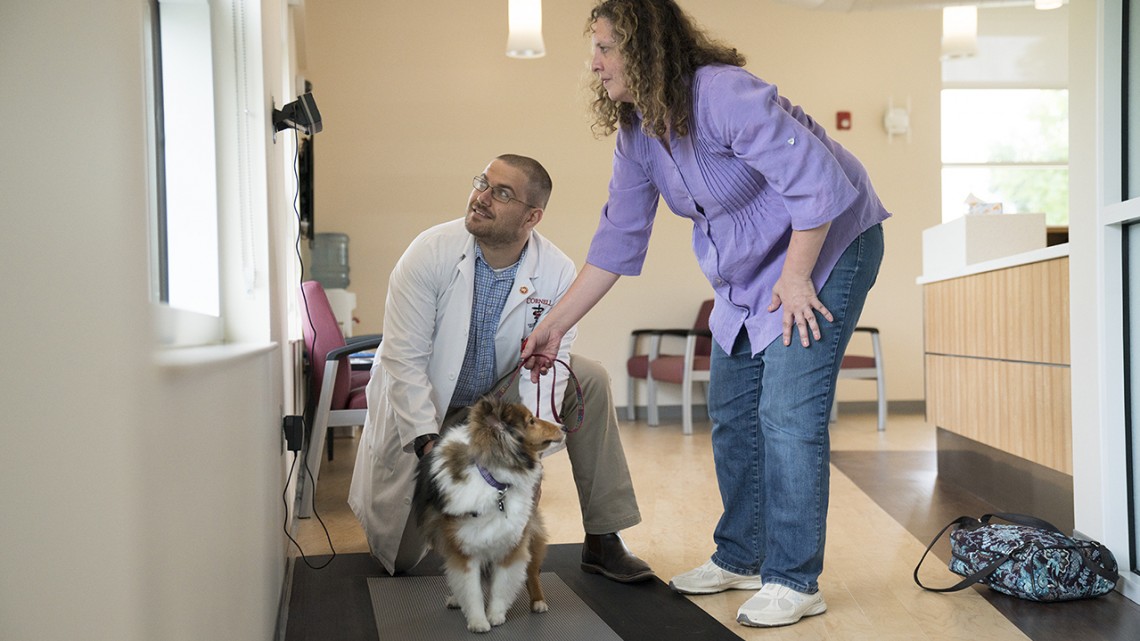
A patient steps on the scale at Cornell’s Small Animal Community Practice.
Toolkit helps veterinarians to battle pet obesity trend
By Melanie Greaver Cordova
Cornell alumnae have developed a set of tools for veterinarians across the United States to more easily address pet obesity with pet owners. The resources in the Pet Obesity Toolkit – created by Gillian Angliss, D.V.M. ’07, and Stephanie Janeczko, D.V.M. ’04, M.S. ’09 – are now available for free to all members of the American Veterinary Medical Association (AVMA).
“We wanted to provide a way for veterinarians to approach a conversation about obesity with their clients,” Angliss said. “It can be difficult communicating that in a delicate and informative way.”
Over half of all dogs and cats in the United States are overweight or obese, according to the AVMA. As in humans, obesity is linked to chronic and debilitating diseases in pets, including heart disease, diabetes mellitus and cancer. Few pet owners actually discuss their pet’s ideal weight with a veterinarian, said Angliss, who works as a clinical assistant professor at Western University of Health Sciences.
To that end, the toolkit has communication resources for veterinarians as well as client-focused documents they can use in their practice. The information covers canine, feline and equine patients, and includes a questionnaire that helps assess a patient’s weight, a weight-management video, handouts with suggestions on substituting pet treats and a 30-day pledge for pet owners to commit to new habits and behaviors.
“Behavior changes are sometimes harder than we think they’ll be. For this toolkit, we thought about how behavior change happens and what kind of materials would be beneficial to help support that,” Angliss said.
“Our group [looked] at what resources are currently available out there as well as some of the challenges that veterinarians and pet owners face in terms of having their pets at a healthy weight,” said Janeczko.
“The biggest hurdles that we have in combating pet obesity,” Angliss added, “are details of the human-animal bond and communicating effectively with clients on this difficult topic.” Our relationships with animals and food are complex and individual, she added, noting veterinarians should assist their clients in finding reasons to help their pet lose weight.
Angliss and Janeczko developed the toolkit as part of the AVMA Future Leaders Program. During the research and development phase, the group piloted a 30-day pledge, and discovered the abundance of materials they had created proved overwhelming for some veterinarians. “No one’s going to use every single one of these resources, but veterinarians can pick and customize what works for their practice,” Angliss said.
“I hope to see greater awareness and more discussion about the topic of pet obesity,” she said. “I also hope to help more veterinary teams feel confident assisting in the management of pet obesity.”
Melanie Greaver Cordova is a staff writer at the College of Veterinary Medicine.
Media Contact
Get Cornell news delivered right to your inbox.
Subscribe
